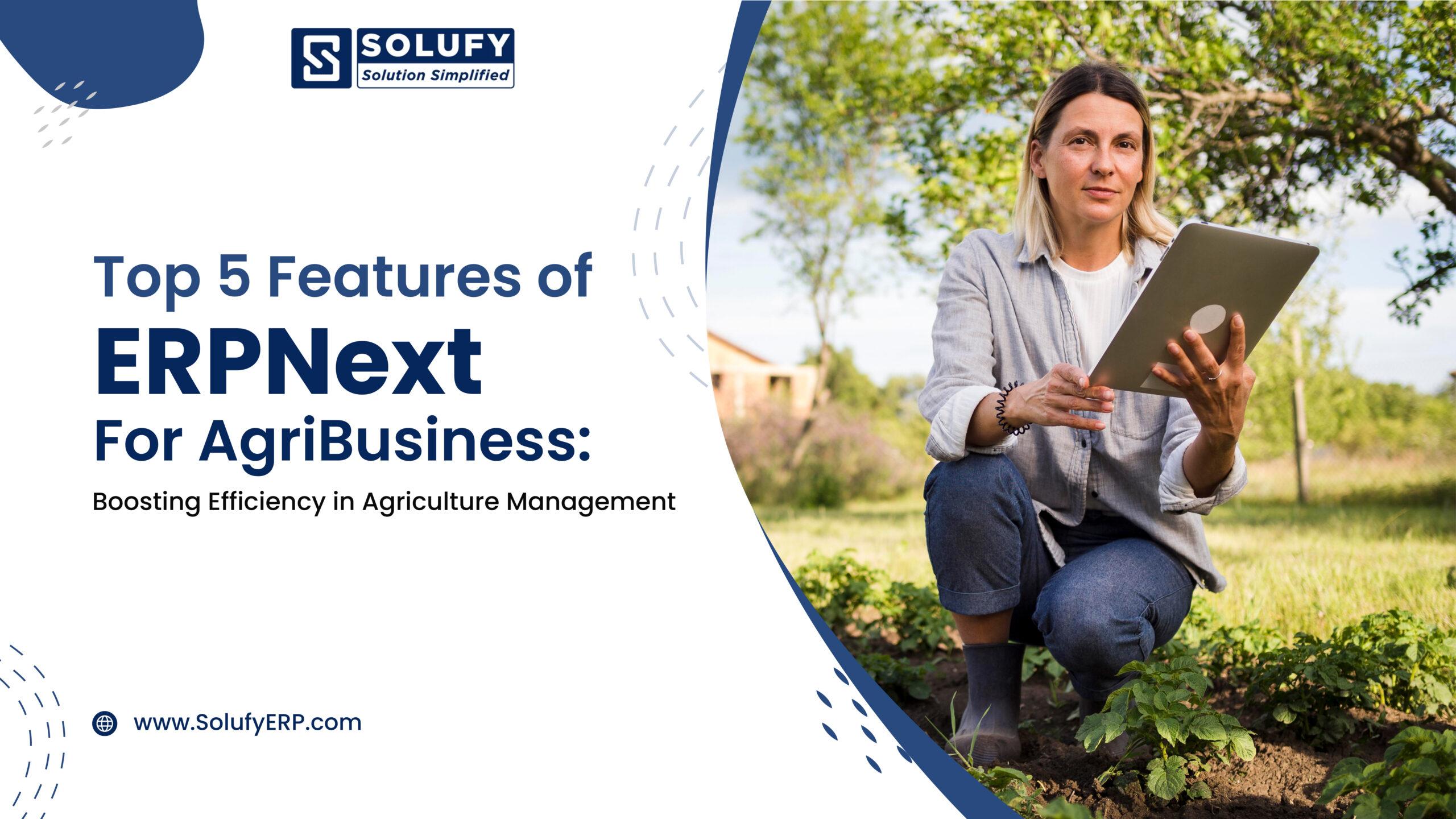With agriculture entering the high-tech business arena, ERP solutions such as ERPNext Agriculture ERP software are designed to develop efficient, sustainable, and profitable farms. An agricultural ERP does not just minimise the daily grind but provides a new approach to the planning, data handling, and decision-making systems of a farm.
Below are the top five features that make Agriculture ERP software indispensable for growth and sustainability in today’s modern farming world.
1. Crop Planning and Management
Crop planning is very essential in ensuring the productive capacity of a farm in case of multiple crops being grown per season. Strong ERP for agriculture helps farmers in making the right decisions on what to plant, when to plant, and in what quantities. Such systems allow farmers to schedule rotations of crops, monitor development stages, and use historical data on yields. ERPNext Agriculture ERP software is another example that uses integrated soil conditions, weather forecast, and past performance in order to optimize planning. Since all crop data are integrated centrally, the chances of overproduction or underproduction reduce, and the efficiency of resource utilisation improves.
2. Inventory and Supply Chain Management
The supply and demand fluctuations of agriculture inputs, such as seeds, fertilisers, and pesticides, should also be monitored. It helps farmers record inventory levels and usage pattern, thus allowing for automatic reordering of important supplies using an Agriculture ERP system. Proper management of the supply chain through the agribusiness ERP software system ensures proper coordination with vendors and suppliers, helps reduce waste and keep costs in control, while ensuring better crop health and productivity.
3. Financial Management and Cost Analysis
Agriculture has special finance difficulties ranging from season-wise shifting revenues to variable costs. Besides, ERPNext is available as an advanced farming-ERP software with functionalities tracking costs, cash flows and making cost analysis against each farm. In any time period, it presents insights regarding profitability for specific crop types or seasons so the high-cost areas can be targeted; a budget forecast for farm improvement can be made; therefore profitability will be maximised. Through balanced finance management, management becomes effective even for the crops undergoing season-wise shifting fluctuations.
4. Compliance and Traceability
Today’s agricultural industry highly favours sustainable cultivation and food safety, whereby traceability and compliance really act as a crucial prerequisite. In such situations, agriculture ERP software ensures proper data recording at every phase-from sowing to harvesting to delivery, which proves easy compliance for farms as per regulatory standards. The traceability also enhances customer trust through responsible farming along with sustainable sourcing. This empowers farms to be proactive to regulations to avoid fines while improving brand reputation.
5. Labor and Workforce Management
Labor is the most integral component of any agricultural farm. An ERP in agriculture can manage the employee requirements, working hours, and payslip based on the demand and season. A labor management module of the ERP for agriculture ensures an appropriate work force is allotted and routed to the correct jobs with increased productivity and overhead cuts. Labor cost and efficiency may be synchronized by a farmer to avoid understaffing or overstaffing so as to maintain proper functioning operations. Also, such systems observe labor laws that pertain to work hours and working conditions.
Why Implement ERP in Agriculture?
Due to the climatic changes and change of consumer preferences, the implemention of an ERP like ERPNext in agriculture management became indispensable. ERPNext consists of all financial accounting, crop management, supply chains, and the workforce within one application. This has been helpful for farm managements to make informed decisions in support of data, while their productivity along with the resilience increased so that over time, there is definite growth curve.
Other benefits of Agriculture ERP
The above features are just a glimpse of what a modern Agriculture ERP can offer. Further modules like weather tracking, equipment maintenance, and analytics dashboards further enhance the system’s capabilities. With customizable options, Agriculture ERPs can be tailored to specific farm needs, making them an indispensable tool for farmers of all scales.
Conclusion
The agriculture industry never stops changing, and that’s where an ERP system like ERPNext Agriculture ERP software comes in. From crop planning to compliance tracking, the ERP solutions empower farmers to operate more efficiently, sustainably, and profitably. Amid climate challenges, labor shortages, and supply chain issues, an ERP is not just a tool for adaptation but a foundation for growth.
To learn more on how you can transform your operation through ERPNext Agriculture ERP Software
🌐 To Get More Details: https://www.solufyerp.com/industries/agriculture-erp-management-software/


